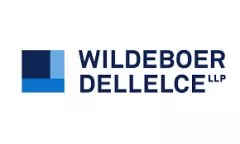Read online or download the full update here.
The U.S. Securities and Exchange Commission ("SEC") recently published an investigative report (the "Report") that places issuers or sponsors of digital assets or "crypto-assets" on notice that the exchange of assets such as tokens issued upon an initial coin offering ("ICO") for value using distributed ledger technology ("DLT") may comprise a distribution of securities, and therefore be subject to United States federal securities laws, including prospectus and registration requirements.
Despite the perception that issuances of tokens are unregulated, in the Report, the SEC concluded that DAO tokens (tokens offered and sold by the virtual organization "The DAO") were securities under federal securities laws. The DAO was a for-profit, decentralized autonomous organization that was roughly analogous to a venture capital fund except that DAO token-holders were entitled to vote directly on investment projects. DAO token-holders stood to share in returns on these investments in proportion to their token-holdings, similar to a dividend entitlement via an equity investment. Between April 30, 2016 and May 28, 2016, The DAO offered and sold approximately 1.15 billion DAO tokens in exchange for approximately USD150 million worth of the Ethereum cryptocurrency ETH.
Although the terms "ICO" and "token sale" are often used interchangeably, an ICO generally refers to the sale of a cryptocurrency intended to function solely as a currency, while the issue of a token (a "tokenization event") refers to an individual unit of a cryptocurrency generated by a "Smart Contract System", usually built using blockchain technology, which possesses multi-functionality, including use or participation rights to access and contribute to the development of the decentralized platform to which the token relates.
In either instance, the sale of a cryptocurrency or crypto-asset is a crowdfunding event during which investors purchase a company's fledgling cryptocurrency in exchange for legal tender or an established cryptocurrency such as Ethereum or Bitcoin. The investor can then choose to keep the cryptocurrency to take advantage of its benefits (such as voting rights, profit-sharing rights or use as payment towards the company's services) or the investor can sell the cryptocurrency on an online platform or "cryptocurrency exchange" in an attempt to net a profit. Token sales are comparable to initial public offerings ("IPOs") in that both facilitate commercial fundraising, and both enable investors to speculate on the success of emerging businesses. However, issuers and sponsors of these assets have attempted to differentiate token sales from IPOs by avoiding language conventionally associated with securities, by soliciting donations from enthusiastic supporters rather than from professional investors, and by framing cryptocurrencies as valuable within the private economy of the decentralized platform to which they relate rather than as freely tradeable assets.
The Howey Test
In the United States, the basis for determining whether or not anything sold in the U.S., or to U.S. investors, is a "security," finds its origin in the "Howey Test" which dates back to a 1946 United States Supreme Court ruling that establishes that a security includes an "investment contract," and that an investment contract "is an investment of money in a common enterprise with a reasonable expectation of profits to be derived from the entrepreneurial or managerial efforts of others."
The Report concluded that an investment of a cryptocurrency such as ETH clearly meets the definition of "money" for the purposes of the Howey Test (money being defined to include virtual currencies) and that a purchaser of DAO tokens had a reasonable expectation of profit on their investment through the entrepreneurial or managerial efforts of others, in part because the efforts of Slock.it (the creator of The DAO), Slock.it's co-founders and The DAO's curators were essential to the success of the enterprise; and because DAO token-holders had only limited voting rights that did not translate into meaningful control over the organization.
Going forward, the Report states that securities laws and registration requirements:
"....apply to those who offer and sell securities in the United States, regardless whether the issuing entity is a traditional company or a decentralized autonomous organization, regardless whether those securities are purchased using U.S. dollars or virtual currencies, and regardless whether they are distributed in certificated form or through distributed ledger technology."
In affirming that DLT-based securities are subject to traditional securities registration requirements, the Report reiterates that regulatory review will focus on the substantive aspects of the offering, rather than on specific terminology or attempts at positioning the offering in a certain light.
In addition, the Report states that the platforms or cryptocurrency exchanges that facilitate secondary market buying and selling of DAO tokens appear to meet the definition of "exchange" as defined by the United States Securities Exchange Act of 1934, requiring registration as national securities exchanges unless exempted from such registration. An organization, association or group of persons meets the definition of an exchange if it or they "brings together the orders for securities of multiple buyers and sellers;" and "use established, non-discretionary methods (whether by providing a trading facility or by setting rules) under which such orders interact with each other, and the buyers and sellers entering such orders agree to the terms of the trade."
Sponsors of such exchanges will be required to carefully consider the applicability of these rules as well as whether qualification as an "alternative trading system" may be possible, as certain registration exemptions will apply.
The Legal Situation in Canada
While the SEC ultimately chose not to bring charges against the entities involved with the issuance of DAO tokens, the Report puts any sponsor or issuer using DLT to facilitate issuances of crypto-assets on notice that their product may be considered a security that is subject to U.S. federal securities laws.
Canada has yet to receive an official direction from any provincial or territorial securities regulator regarding the treatment of crypto-assets offered in exchange for legal tender or other crypto-assets of more stable value. However, the Ontario Securities Commission ("OSC") issued guidance in a news release dated March 8, 2017 suggesting that Canada is likely to follow the U.S.' lead.
The OSC warns that, "businesses that use distributed ledger technologies, such as blockchain, as part of their financial products or service offerings ... may be subject to Ontario securities law requirements," and that "products or other assets that are tracked and traded as part of a distributed ledger may be securities, even if they do not represent shares of a company or ownership of an entity."
The content of this article is intended to provide a general guide to the subject matter. Specialist advice should be sought about your specific circumstances.


